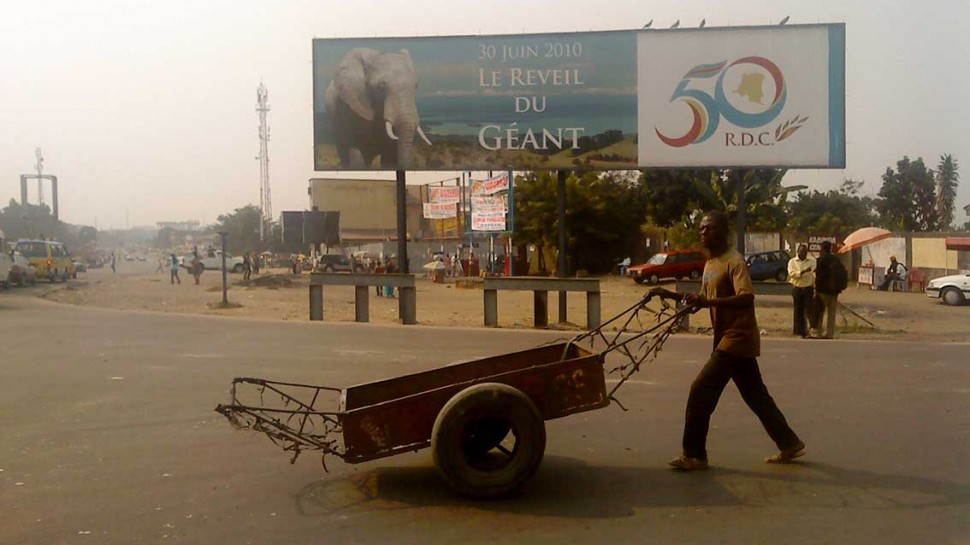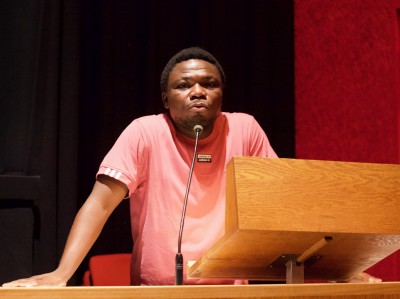
Atalaku
DRC/France, 2013, DCP, color, 60 min.
Lingala and French with English subtitles.
DCP source: filmmaker
Filmed during the 2012 elections, supposedly the first democratic elections since the nation’s independence in 1960, Atalaku (“Town Criers”) describes with equal vigor the poor functioning of democracy within the country as well as a multiplicity of facets of daily life and human relationships that this circumstance helps reveal. The film follows three central protagonists. The first, Gaylor, is an ordinary pastor, affiliate of a church where he exhorts his parishioners, endlessly invoking the name of the Lord to convince women in the audience to donate money. He becomes a tout for candidates in the elections, a “crier” who incites local residents to attend meetings for the political hopefuls who employ him; as he goes through the markets distributing small sums of money, little electoral arguments entrusted to him by incumbents to the national assembly, he keeps as much as he can for himself. The second protagonist is an orchestra of some twenty members, young musicians who rehearse, argue and get drunk in a vast cemetery. The third is a group of young women who belong to a citizens’ association; they canvas the streets explaining to people why and how to vote and supervise ballot procedure in polling stations. Through these encounters, Atalaku captures the shameless use of bribes, as well as the political passion of many citizens, the misogyny still in force including among “democrats,” and the force of a clergy imbued with mysticism. The film ends with the riots that stem from an electoral process so clearly marred by numerous irregularities, and the repression that ensues. But it is the whole of relations to the electoral process that appears as biased, ineffective and immoral, even before the fraud that would bring dictator Joseph Kabila back to power.
The first short in the omnibus Congo en 4 actes, this film takes place in a maternity ward in Kinshasa—an environment familiar to Hamadi, who studied medicine before turning his hand to filmmaking. Through the exemplary situation of women who have just given birth, the film presents in detail the unbearable tension within a dysfunctional society, marked at once by tremendous poverty and violence (which translates in particular to numerous rapes and children born of these rapes); the unrestrained commoditization of relationships; widespread corruption; and a litigious bureaucracy. Dames en attente focuses on the hospital accountant—whose job it is to collect birthing fees from women who cannot afford to pay—as she pleads a particularly dire case to the administration, or even attempts to convince the children’s fathers (if they have not disappeared) to foot the bill. As witness to situations—occasionally extreme—that ordinarily remain hidden, the film develops a rich portrait that refuses to pass judgment; instead, it makes manifest the endless obstacles and dead-ends within a collective mechanism, one not limited, of course, to maternity wards.














